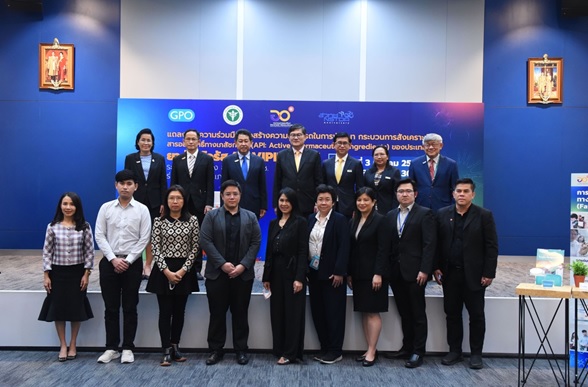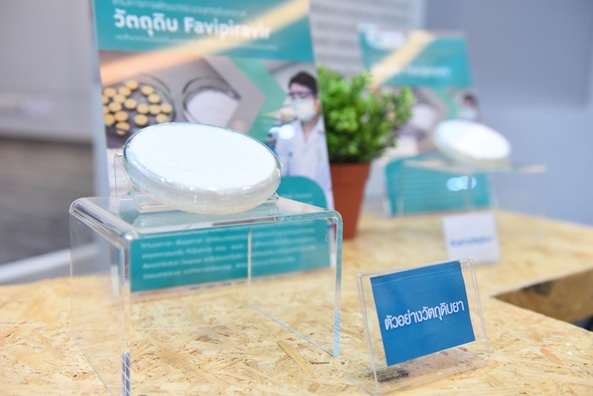On 3 March 2021, Dr. Anek Laothamatas, Minister of Higher Education, Science, Research and Innovation (MHESI) presided over a press conference announcing a collaboration between NSTDA and the Government Pharmaceutical Organization (GPO) on the development of industrial-scale manufacturing process of favipiravir API. The press conference was participated by GPO Director-General Dr. Witoon Danwiboon, NSTDA President Dr. Narong Sirilertworakul, BIOTEC Executive Director Dr. Wonnop Visessanguan and executives and researchers of the two organizations.

Favipiravir is an antiviral drug reportedly effective against the SARS-CoV-2, the virus that causes COVID-19. API or Active Pharmaceutical Ingredient is the active ingredient contained in medicine. Favipiravir API is therefore a key to the production of the drug to treat COVID-19 patients.
More than 95% of APIs used by Thai pharma companies are imported, as most companies do not have the capabilities of manufacturing APIs. Due to the pandemic, there has been shortage of favipiravir API supply in the world market. An ability to manufacture favipiravir API domestically is, therefore, critical to the national health security during the pandemic and will also have a long-term to benefit Thai pharmaceutical industry as they can reduce dependency on procurement from overseas.
Research team at BIOTEC-NSTDA has successfully developed a favipiravir API synthesis process utilizing raw materials easily sourced and less expensive. The quality of favipiravir API synthesized from this new process meets international standards and is equivalent to imported ones. This lab-scale process will be transferred to GPO for a joint studies to scale up to a semi-industrial and industrial processes.

This project marks a significant milestone of Bio-Circular-Green economy model (BCG) that has recently been declared the national agenda by the government. BCG aims to enhance the competitiveness of Thai industry and society by applying the concept of bioeconomy, circular economy and green economy to achieve a balanced and sustainable development. Technology and innovation will be employed to transform Thailand’s comparative advantage in biological and cultural diversity to competitive advantage, focusing on conservation, rehabilitation and management, as well as value creation of biological and cultural diversity. BCG model will be applied to four main industries considered important to Thai economy - namely agriculture and food; medical and wellness; energy, biomaterial and biochemical; and tourism and creative economy. Under the medical and well ness industry, the government aims to build capability in to develop and commercialize drug, vaccine, advanced therapy medicinal products (ATMPs) and genomic medicine.
